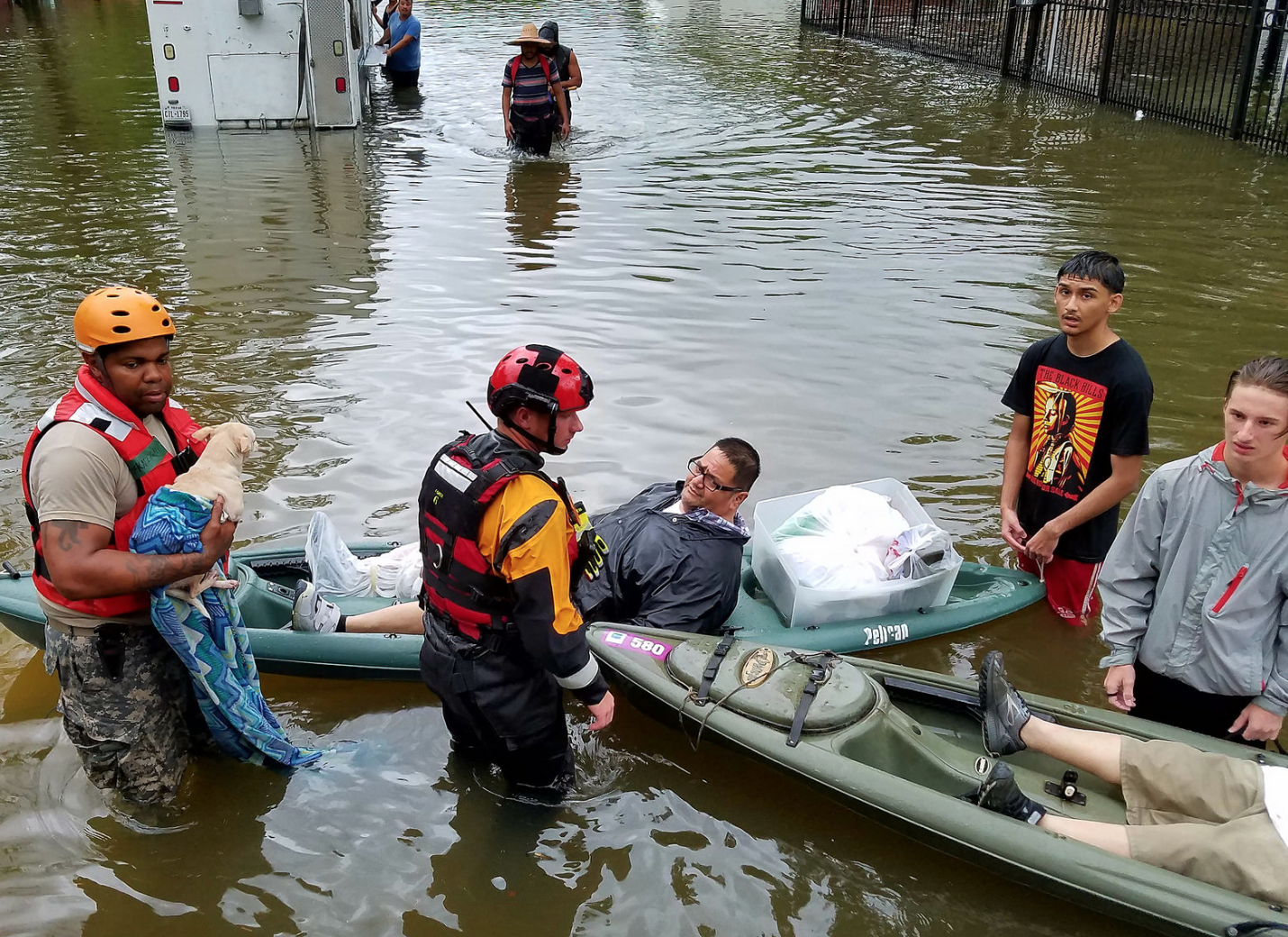In the wake of Harvey, there have been efforts organized over social media to rescue people with boats and jet skis; house them via Airbnb; feed them with the help of food banks, grocery stores and other donations; help them clean up their flooded homes and now, provide medical care for volunteers and individuals who may be at risk.
Floodwaters are dangerous for a number of reasons. As cleanup and recovery efforts continue in and around Houston, local health officials are urging residents to take precautions. It's difficult to know what exactly the dangers are that lurk in floodwaters but, one of the concerns for officials now is tetanus.
"People 7 years of age and older with puncture wounds or cuts that were exposed to Harvey floodwaters may be at risk for contracting tetanus," according to a release from the Houston Health Department.
But there are concerns about other infections. In September 2005, after Hurricane Katrina, for example, "the CDC reported 30 cases of MRSA, an antibiotic-resistant staphylococcus bacterium, among a group of New Orleans evacuees sent to Dallas," according to the Washington Post. "And Vibrio pathogens, bacteria popularly described as 'flesh-eating,' sickened two dozen people and killed six. There were also scattered reports of skin rashes, from infections and heat, as well as red marks blamed on biting mites."
The Houston Health Department offered specific precautions for folks cleaning up flooded homes, including using "a N-95 rated dust mask if heavy concentrations of mold are already growing in your home." The department also recommended washing all surfaces with soap and warm clean water before sanitizing them with a mixture of household bleach and clean water.
Gloves and long clothing could also help reduce potential exposure. Despite the risks, large numbers of private residents are organizing on NextDoor, Facebook and other networking platforms to rescue stranded neighbors and help strangers clean up their homes. And as reports of skin infections begin to surface on social media, those same residents are also organizing efforts to get people the medicine they need.
Paul Middendorf, director and owner of galleryHOMELAND, a contemporary art gallery in Houston, helped organize boat rescues as waters rose across Houston.
"After seven very long days we have to close our water chapter for now," wrote Middendorf on a Facebook post on Sunday. "The Boat Rescue Teams risked their lives every time they got into the water. The risk were there but taken anyway...Thank you for your bravery, endurance, and opening your beautiful hearts."
Now, Middendorf said he and others, including Maggie Judge, a nurse, are now helping to bring medical care to volunteers through free clinics at multiple locations that will offer antibiotics, immunizations and other services.
With a focus on tetanus, some health experts have cautioned against a rush to vaccinate everyone. "Exposure to flood waters does not increase the risk of tetanus, and tetanus immunization campaigns are not needed," Centers for Disease Control and Prevention press officer Kristen Nordlund told the University of Minnesota's Center for Infectious Diseases and Research Policy. "Each state and local health department can determine what is best for their evacuees after any given disaster, including in terms of vaccination efforts."
But the Texas state health department still stressed it was important for people to be up to date on their tetanus shots, "because if they are injured (as is common in disaster settings) the injury is likely to be contaminated. If a person receives a puncture wound or a wound contaminated with feces, soil, or saliva, a doctor or health department should determine whether a tetanus booster is necessary based on individual records."
There are other health concerns as well, including respiratory infections worsened by crowded conditions in emergency shelters and risks from compromised food or water, as well as the potential dangers of toxic waste. But organizers are hoping to minimize the risk as much as possible.
"I've been so heart broken but THIS is outstanding," wrote Middendorf in another post. "Keep it up people. We will be working our tails off for years! Houston Strong!"

